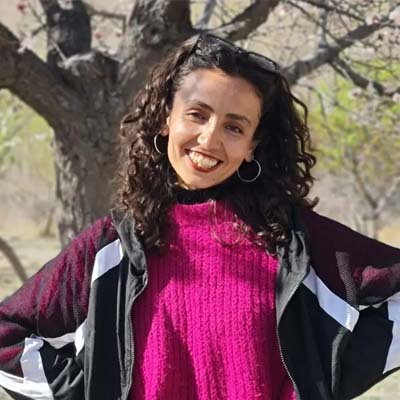
Shadia Razacomes from Passu, a small village in northern Pakistan. She completed her schooling in Passu and then attended the Aga Khan Higher Secondary School for her secondary education. She graduated in July 2023 from PMAS Arid Agriculture University in Rawalpindi with a bachelor's degree in agriculture, majoring in food technology. Currently, she is interning with the Passu Agriculture Society and working as a facilitator on a project called Adolescents Friendly Center.
Shadia says’ “Growing up in a society where serving the community was ingrained in me since childhood, I have always contributed through volunteering, community work, and teaching or coaching at schools. After graduating, I realized, I need to go beyond just giving time and knowledge; I have to initiate projects addressing local issues with a global impact. I am grateful to OMLAS for providing me with the opportunity to make a lasting difference in my community.”
OMLAS Project
She has two innovative project ideas. One of them is “SheTechAgri,” which aims to support the Women's Organization in Passu. This organization owns 40 kanals of land and operates a cooperative system for women to work on agriculture and related projects, making women financially independent and strong. This project has several components:This project has several components, some of them are; establishing a nursery or garden to grow and sell various plants, flowers, and herbs, utilizing an existing greenhouse, developing value-added agriculture and food processing, creating seed banks for seed collection, storage, and providing training and capacity-building programs in sustainable agriculture and farm management.
The location of her proposed project is Passu, a village in Gilgit Baltistan, northern Pakistan and the project aligns with SDG 2: Zero Hunger.
Another project idea, also focusing on women and girls, is “Empowering Girls through Menstrual Health Education.” Shadia aims to educate girls about menstruation, puberty, and hygiene, intending to break societal taboos and empower them to embrace their menstrual health with pride. Her project will also involve parents, fostering a supportive community environment.
Major components of this project are; providing awareness on mensural health and hygine, breaking taboos and normalise menstruation, and provide safe sanitary supplies to school girls. Additionally, ensure the targeted schools have adequate facilities and resources to support girls during their menstrual cycles.
The project location is Upper Gojal Hunza, which includes 9 villages. This project aligns with SDG 3: Good Health and Well-Being by promoting menstrual health and hygiene, and SDG 5: Gender Equality by addressing gender-specific health needs and breaking societal taboos related to menstruation.